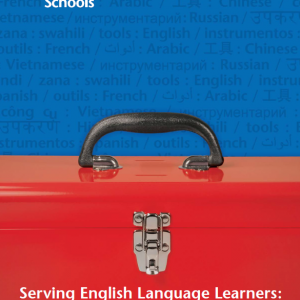This week the National Alliance for Public Charter Schools released Serving English Language Learners: A Toolkit for Public Charter Schools. This timely resource is designed to provide charter school leaders with clear guidance and concrete examples to assist them in designing, implementing, and improving their services to ELL students. The Alliance’s Renita Thukal who spearheaded the development of the toolkit, notes that the number of ELL students in the U.S. increased by 27 percent over the past decade and will become an even larger percentage of the school-age population in the years to come. A new report from the Council of the Great City Schools  explores the growth of this population in more depth and found that large achievement gaps persist for ELLs in its member cities.
explores the growth of this population in more depth and found that large achievement gaps persist for ELLs in its member cities.
We know that some charter schools are doing amazing work with ELL students and are demonstrating that these students are capable of the same greatness as their non-ELL peers. At Rocketship’s seven charter schools in Santa Clara County, CA, for example, 69 percent of students speak English as a second language, compared to 24 percent countywide. Yet Rocketship’s English language learners had a state performance score of 843 while the statewide average was 762. Strive Prep in Denver (formerly West Denver Prep) has also shown outstanding results with its high ELL population and has been recognized for its strong program.
We also know, however, that many charter schools struggle with serving ELL students, both in terms of compliance with federal and state legal requirements and program design and delivery. Hopefully, Serving English Language Learners: A Toolkit for Public Charter Schools can help all charter schools better meet the challenge of providing ELL students the same high quality educational opportunities that all children need and deserve.


